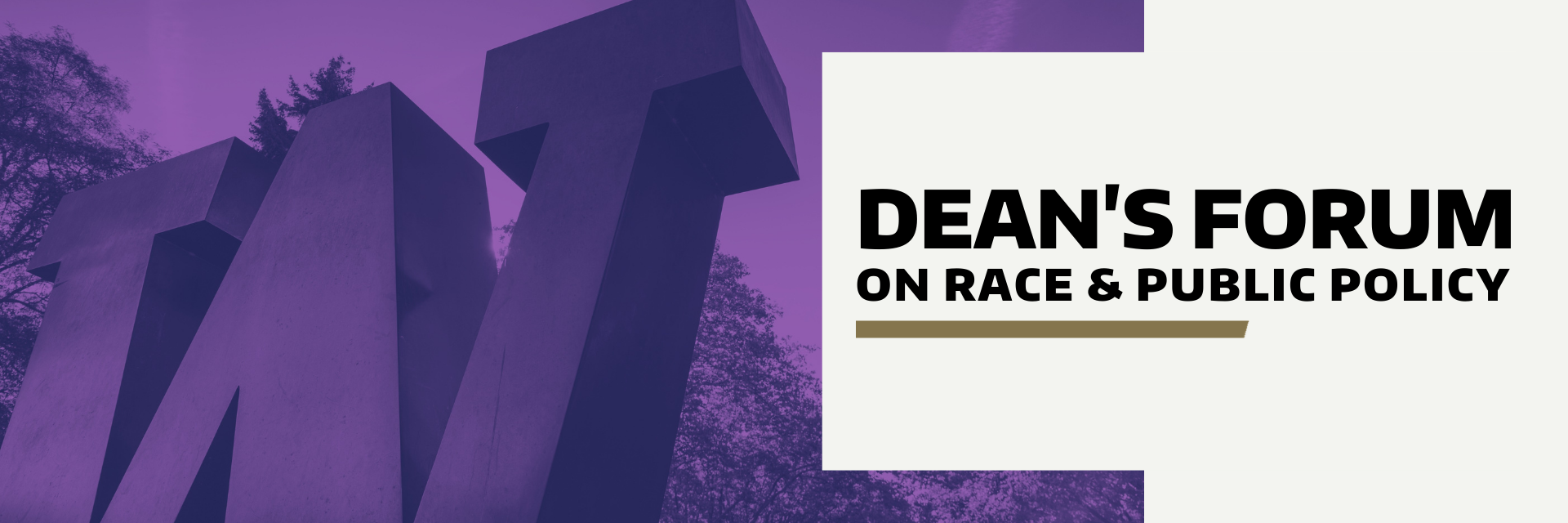The Medina Foundation
Category: News and Information
Management Analytics Program Development in Kitsap County
Kitsap County Department of Community Development
Planning for the Future: Assessing the Legacy of the Growth Management Act and Potential Policy Alternatives in the Puget Sound Region
Washington State COVID-19 Vaccination: Strategies for Expediting a Safe and Equitable Recovery
The Impact of the COVID-19 Pandemic on Low-Income Tenants’ Housing Security in Washington State
by Matthew Fowle & Rachel Fyall
June 30, 2021. The COVID-19 pandemic and related economic recession have had a substantial negative impact on low-income tenants’ housing security. A record number of households have been unable to pay their rent on-time. To stem the threat of eviction for non-payment of rent, governments have implemented eviction moratoria. This mixed methods study, in partnership with the Tenants Union of Washington State, draws on semi-structured interviews (n=25) and a survey (n=410) with low-income tenants to examine the extent to which the COVID-19 pandemic and eviction moratoria have impacted housing security in Washington State.
The study finds that the pandemic has led to downward residential mobility, increased rental debt, and poorer housing quality for low-income households. The pandemic has also exacerbated the negative impact of housing insecurity on health as tenants are spending more time in substandard housing that is harmful to their physical and mental health. Overall, households of color have been disproportionately affected by this worsening housing security, in particular Black and Latinx tenants. The eviction moratorium has likely been successful in preventing a surge in formal evictions during the pandemic. However, methods of informal evictions and forced moves, such as landlords changing door locks and refusing to renew leases, have significantly increased.
Learn more about people mentioned in this post
NAPA Social Equity Leadership Conference
The 20th Annual National Academy of Public Administration (NAPA) Social Equity Leadership Conference (SELC) was held June 9 – 11, 2021. The theme, “Fostering Social Equity: Innovation and Change,” emphasized developing and promoting concrete actions with lasting impact. The conference provided a space to discuss how public administrators can develop a broader understanding of social equity and recognize social equity’s implications within the administrative context.
Social equity—a key pillar of public administration alongside economy, efficiency, and effectiveness—addresses fairness, justice, and equity within a variety of public contexts. In its continuing fight for social equity in public administration, NAPA envisions transforming the public administration landscape and the public it serves by developing a framework that would enable public administrators, policy makers, legislators, and other like-minded organizations at all levels of government to assess the social equity impact of proposed legislation, regulations and policies and make necessary adjustments before they are implemented.
Q&A with Dean Jodi Sandfort and Gary Glickman, Standing Panel on Social Equity in Governance Chair, NAPA
Understanding Social and Economic Factors of Social Infrastructure
Given events of the last few years, many things are changing in our political, economic, and social lives. This panel provides cutting edge research to help us understand some of these changes, from the racial reckoning and social response that pulled down confederate statutes to changes in the workforce and contracting practices during COVID and in recent years.
Blueprint for a Just & Equitable Future: Washington State’s 10-Year Plan to Dismantle Poverty
Stubbornly high rates of poverty are the product of inherently unjust and unequal policies, programs, and practices that have underwritten our economy for decades. In response, Washington state Governor Jay Inslee created a Poverty Reduction Work Group (PRWG) in 2018, tasking the group with the creation of a comprehensive, 10-year plan to dismantle poverty. With sincerity and humor, PRWG members Jennifer Bereskin, Drayton Jackson, Lori Pfingst, and Shereese Rhodes will share the journey to create the plan – the trials and tribulations of overcoming institutional distrust of agencies, the implicit biases we hold about people experiencing poverty and those serving them, how we are all undermined by systems underwritten by white supremacy, and the power in recognizing each other’s humanity.
Racial Justice: Not a Zero Sum Game - Government’s Role in the Racial Justice Reckoning
Panelists from the Seattle Office for Civil Rights discuss about the growing polarization and entrenchment surrounding the racial justice reckoning the country is experiencing; how the Seattle Office for Civil Rights’ Race and Social Justice Initiative is structured and works; our journey to rebuild accountability to community; and how city departments make the work of antiracism their own.
Event Recap | Public Matters 2021
On May 13th, the Evans School community convened for Public Matters 2021. We heard from six amazing and dynamic storytellers as they shared their own reflections on this year’s theme, “Transforming Public Service.” Attendees were invited to listen and learn, and called upon to engage and commit to a new vision for anti-racist public service by sharing their gifts with the Evans School – whether they be time, experience, or financial gifts – as we build a community of reciprocity.
The inaugural Public Matters was a true celebration of the knowledge of our wider community. Watch the recording, learn more about our storytellers and their work, explore the takeaways, and join us as together we envision inclusively built societies powered by brave leadership, rigorous action, and collective wisdom.
Our Public Matters Storytellers:

Priya D. Saxena, MPA (They/Them)
Founder + President of Equitable Future
Continue reading “Event Recap | Public Matters 2021”
Event Recap | Dean’s Forum on Race & Public Policy: Leading and Managing Anti-Racist Organizations

At the heart of the Evans School’s mission is a call to host community conversations that support and inspire public leaders, and our Dean’s Forum events have focused on the intersection of race and public policy. The series continued with a live conversation between Dr. Susan Gooden, Dean of the L. Douglas Wilder School of Government and Public Affairs at Virginia Commonwealth University, and Dr. Jodi Sandfort, Dean of the Evans School of Public Policy & Governance at the University of Washington, as they discussed ways to advance anti-racist public administration and management.

Susan T. Gooden, Ph.D., is dean and professor of the L. Douglas Wilder School of Government and Public Affairs at Virginia Commonwealth University. She is an internationally recognized expert on social equity. Gooden is an elected fellow of the congressionally chartered National Academy of Public Administration and is past president of the American Society for Public Administration.
» Read more
She is the Vice-President of the Network of Associated Schools of Public Policy, Affairs and Administration (NASPAA). Her books include Global Equity in Administration (2020); Why Research Methods Matter (2018, Melvin and Leigh); Race and Social Equity: A Nervous Area of Government (2014, Routledge); and Cultural Competency for Public Administrators (2012, Routledge). Her research has been funded by several organizations including the Russell Sage Foundation, the Kellogg Foundation, the Smith Richardson Foundation, MDRC, and the Manhattan Institute for Policy Research.
Gooden has received several honors including the 2021 Charles H. Levine Award for Excellence in Public Administration presented jointly by ASPA and NASPAA, the Herbert Simon Best Book Award presented by the American Political Science Association and the Jewel Prestage Pioneer Award from the Conference of Minority Public Administrators. She received a Fulbright Specialist Award to Zayed University, Abu Dhabi, United Arab Emirates.
Gooden was appointed to the Commission on Peer Review and Accreditation, the accrediting arm of the Network of Associated Schools of Public Policy, Affairs and Administration. She has previously served as an elected member to the national policy council of the Association for Public Policy Analysis and Management. She was appointed to the Virginia Community College System board and served as board chair. She currently serves on the board of the Virginia Retirement System. A native of Martinsville & Henry County, Virginia, Gooden earned an A.S. in Natural Science from Patrick Henry Community College, a B.A. in English from Virginia Tech, and an M.A. in Political Science from Virginia Tech. She received her doctorate from the Maxwell School of Citizenship and Public Affairs at Syracuse University.
» Collapse

Dr. Jodi Sandfort joined the Evans School of Public Policy & Governance as dean in January 2021. Formerly a professor at the Humphrey School of Public Affairs, University of Minnesota, her work focuses on improving the implementation of social policy, particularly those policies designed to support low-income children and their families.
» Read more
She is the founder and academic director of the Hubert Project, a global community focused on improving professional education and effectiveness through development and sharing of multimedia learning materials, such as e-cases, e-studies, and video briefs. She is an elected member of the National Academy of Public Administration, a distinguished honor recognizing her innovative leadership in the field.
For six years she directed the human services program at the McKnight Foundation in Minneapolis, where she managed a portfolio of $20 million in annual giving. Sandfort has served as a Family Self-Sufficiency Scholar funded by the U.S. Department of Health and Human Services, Office of Planning, Research & Evaluation. In 2015, she was the co-chair of the Public Management Research Association conference, hosting scholars from around the world in Minneapolis. She has also worked as a senior strategy consultant with the Bush Foundation and special assistant to the President of the University of Minnesota.
Sandfort is the author of books, many academic articles, book chapters, and reports for policymakers and practitioners about social welfare system design, organizational effectiveness, early childhood education, welfare reform, nonprofit management, and research methodology. She is currently on the editorial boards of Nonprofit and Voluntary Sector Quarterly, American Review of Public Administration, Journal of Public Administration Research and Theory, and the Journal of Public Affairs Education.
She has worked as a consultant with national and statewide foundations, think tanks, and other nonprofit human service organizations. She has provided leadership coaching, executive development, and organizational development services to nonprofit, philanthropic, and public organizations. She has accepted academic appointments solely in professional schools because they are promising sites for scholar-practitioner dialogue.
» Collapse
Evans School Ranks Among Best in the Nation
U.S. News & World Report’s 2022 Best Graduate Schools places the Evans School of Public Policy & Governance among the best schools in the nation and the world. The Evans School ranked fourth among public affairs graduate programs overall, and second among public institutions.
Six of our specializations were also ranked in the top ten: Environmental Policy, Nonprofit Management, Social Policy, Public Finance & Budgeting, Public Policy Analysis, and Public Management and Leadership.
Evans School Dean Jodi Sandford noted: “I am pleased by Evans’ continued top-five ranking because of the ways it positions us to engage deeply with public policy and implementation issues moving forward, sharing our learning with peers throughout the country and the world. We should all take great pride in our School’s work to inspire public service and democratize public policy.”
These rankings are released annually and are based on reputation and respect among peer institutions. These rankings are representative our leadership and expertise in these areas as an institution. View the full rankings.
The Evans School Welcomes New Faculty Members in Fall 2021
The Evans School is proud to welcome two new faculty members to the Evans School community for the 2021-22 academic year. Dr. Sebawit G. Bishu and Isabelle M. Cohen are both highly accomplished scholars and educators who will significantly enhance the Evans School’s offerings and add great vibrancy to the Evans School community.
 Sebawit G. Bishu, Ph.D.
Sebawit G. Bishu, Ph.D.
Sebawit G. Bishu is currently an Assistant Professor at the University of Colorado Denver, School of Public Affairs. She also holds a non-resident fellow appointment at Harvard Kennedy School of Government, Women and Public Policy Program (WAPPP).
Bishu’s research centers around making government effective and equitable through conscious and ethical public management practice. Her work aims at understanding and improving the circumstances under which government provides equitable opportunity to all its workforce and equitable service outcome to citizens. Bishu is passionate about improving women’s and racial minority group’s participation in decision-making roles in government in Africa and the United States.
 Isabelle M. Cohen
Isabelle M. Cohen
Isabelle Cohen’s research focuses on understanding technological and organizational innovations in developing countries. She partners with governmental and non-governmental organizations to rigorously evaluate new programs, policies and procedures, using tools such as randomized evaluations, administrative data analysis, geocoding and machine learning techniques. Much of her current research is focused in Uganda, although she has worked and done research in many other countries, including India, Peru and Greece.
Cohen will receive her Ph.D. in Economics from the University of California, Berkeley in May 2021. She received her Master’s in Public Policy from the College of William & Mary in 2012, and her B.A. in International Relations from the same university in 2011.